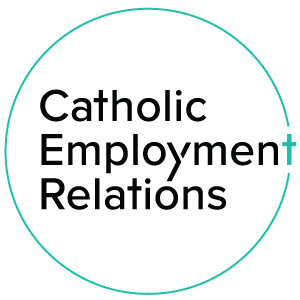Fair Work Legislation Amendment - update #2
* This article is a transcript of selected sections of our CER matters podcast episode # 1.
The Secure Jobs, Better Pay amendment to the Fair Work Act will have significant implications for enterprise agreements. Overall, while the amendments are primarily aimed at improving job security and pay for workers, they will require employers to make some changes to their employment arrangements and practices to ensure compliance with the new laws.
The changes introduced by the Fair Work Amendments, which we will cover in this update, include provisions to:
Initiating bargaining – the changes introduced that allow unions to initiate bargaining
Termination of enterprise agreements after nominal expiry date
Dealing with errors in enterprise agreements
Initiating bargaining
The amendments make it easier for unions to commence bargaining for a single-enterprise agreement. Before the amendment, bargaining usually commenced when the employer initiated it, or when the employer agreed to bargain.
Since the amendment came into force, unions can initiate bargaining simply by writing to the employer. This applies in situations where:
the existing single-enterprise agreement has passed its nominal expiry date - within the past 5 years;
the proposed agreement has a scope (or coverage) that is substantially similar to the existing agreement; and
a single interest employer authorisation did not cease to be in operation when the existing agreement was being made.
This is a significant change from the previous laws where a majority support determination or a scope order was required to force an employer to commence bargaining. This means that in certain circumstances, unions are no longer required to demonstrate that a majority of employees want to bargain.
When a union makes this request in writing, it means the employer is obligated to commence bargaining and the good faith bargaining obligations under the Act are triggered.
This method for initiating bargaining applies does not apply to a proposed Greenfields agreement, a multi-enterprise agreement (i.e. a cooperative workplaces agreement), supported bargaining stream or the single interest bargaining stream.
Termination of enterprise agreements after nominal expiry date
It is now much more difficult for employers to unilaterally terminate an enterprise agreement. Before the amendment, all the employer needed to do was satisfy the Commission that termination was not contrary to the public interest. The Commission would also take into account the views of employees and unions, and consider the likely effect that terminating the agreement would have on them.
Now, where an enterprise agreement has passed its nominal expiry date and an employer applies to unilaterally terminate it, the Commission must be satisfied that termination is appropriate in the circumstances and either:
the continued operation of the agreement would be unfair to the employees covered, or
the agreement does not cover any employees and isn’t likely to in future, or
all three of the following criteria are satisfied:
that the agreement would pose a significant threat to business’ viability; and
that the potential for the termination of employees would be reduced; and
the employer would need to give a ‘guarantee of termination entitlements’.
The FWC must have regard to certain factors, including:
whether the application was made at or after the notification time; and
whether bargaining is occurring; and
whether termination would adversely affect the employees’ bargaining position.
The intention of that last factor is to prevent an agreement from being terminated as a bargaining tactic. The result is that an employer now has less leverage in dealing with agreements with unsustainable conditions.
It is also important to note that the Act provides for an alternative method of terminating an agreement, which is not affected by the amendment. That is where a vote is held, and the termination has been agreed to by a majority of the employees covered.
Dealing with errors in enterprise agreements
The FWC now has the power to:
vary an agreement to correct or amend obvious errors, defects, or irregularities; and
validate a decision to approve an enterprise agreement or variation, where the incorrect version of the document was inadvertently submitted to the Commission.
That means the FWC can retroactively apply the approval to the enterprise agreement that was made instead of the incorrect version that was lodged.
This change was made to reduce the time, expense, and complexity involved with rectifying errors in enterprise agreements which have already been approved.
This is a welcome change for employers and employees because making errors in drafting agreements is very common, for a whole range of reasons: typographic errors, too many people changing the same document, communication breakdowns, copy and paste mistakes, excel formula errors, the list is goes on.
Those mistakes are not always picked up before the agreement is lodged and can cause further errors being made in the way those agreements are applied. Those situations can lead to unintended outcomes, disputes in the Commission, and affect an employer’s credibility with its employees.
The Commission has had the power to correct obvious errors in its decisions under s 602, but it hasn’t previously had the power to correct an enterprise agreement. Now it has that power.
Listen to the CER matters podcast
Fair Work Legislation Amendment (Secure Jobs, Better Pay) Act 2022 - how will the changes affect your organisation, and when exactly will they come into effect?
Download your free guide and timeline which provides detailed information on the important dates and issues that will need to be addressed to ensure compliance.
Our professional CER team are here to help you understand your obligations and ensure that you have sufficient procedures and processes in place. Contact enquiry@cer.catholic.org.au.

